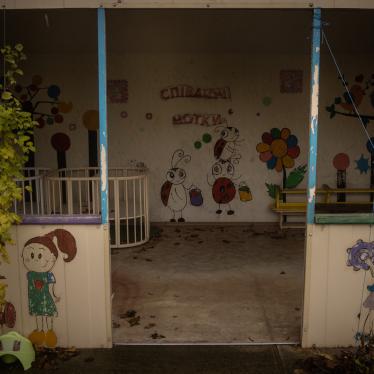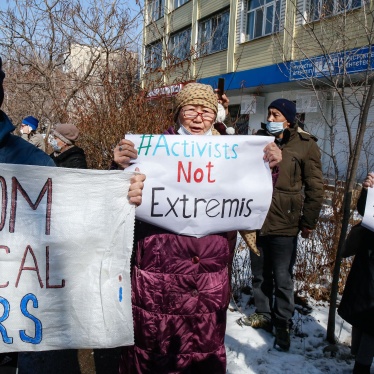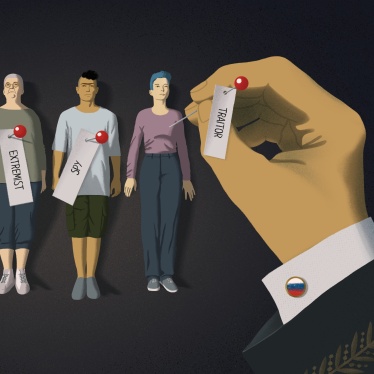(Kiev) – Detentions and abuses of civilians in the context of the conflict in eastern Ukraine went largely unaddressed during 2016, Human Rights Watch said today in its World Report 2017.
Ukrainian government and Russia-backed separatists in eastern Ukraine detained dozens of civilians for allegedly collaborating with the other side and held them in prolonged arbitrary detention, often incommunicado, denying them contact with lawyers and family. In some cases, detainees were forcibly disappeared as authorities denied they were in detention or refused to provide information on their whereabouts. Many were tortured or otherwise suffered ill-treatment; some were denied needed medical attention.
“Enforced disappearances and torture of civilians by both sides fosters an atmosphere of lawlessness and leaves people in eastern Ukraine exposed to abuse,” said Tanya Cooper, Ukraine researcher at Human Rights Watch. “Both sides should take immediate steps to end these abuses and ensure accountability for the grave crimes perpetrated by their respective forces.”
Human Rights Watch, jointly with Amnesty International, found that at least 18 people through the end of July had been
forcibly disappeared and were held in secret detention by the Security Service of Ukraine (SBU) on their premises in Kharkiv through the end of July, one for as long as 16 months. In the self-proclaimed Donetsk People’s Republic (DNR) and Luhansk People’s Republic (LNR), local security services operate in a total vacuum from the rule of law, depriving people in their custody of their rights and leaving them with no way to get justice.
In the 687-page World Report, its 27
th edition, Human Rights Watch reviews human rights practices in more than 90 countries. In his introductory essay, Executive Director
Kenneth Roth writes that a new generation of authoritarian populists seeks to overturn the concept of human rights protections, treating rights as an impediment to the majority will. For those who feel left behind by the global economy and increasingly fear violent crime, civil society groups, the media, and the public have key roles to play in reaffirming the values on which rights-respecting democracy has been built.
Ukrainian authorities have made some progress toward accountability for conflict-related abuses by prosecuting some of the members of military and police battalions involved in serious abuses against civilians in 2014 and 2015.
Journalists covering the armed conflict have also suffered abuses. Ukrainian authorities did not respond appropriately to nationalist groups’ attacks on journalists and leaking of personal data of hundreds of journalists and others accredited by the DNR press center. No effective investigations have been carried out to identify and prosecute those responsible.
In July, a car bomb
killed a prominent investigative journalist, Pavel Sheremet. The investigation is ongoing.
Among other concerns in Ukraine in 2016, anti-lesbian, gay, bisexual, and transgender (LGBT) sentiments remain strong among high-level government officials and the public, although several events in support of LGBT people were largely unmarred by violence, unlike in previous years.
In Crimea, Crimean Tatars face further persecution for their peaceful opposition to Russia’s occupation. Several outspoken leaders and activists were harassed, detained, or charged with separatism. In September, Russia’s Supreme Court upheld a previous court decision to
shut down Mejlis, the Crimean Tatars’ elected representative body, on grounds of involvement in “extremist” activities.
“Ukraine has had to deal with profound crises in the last several years, but that doesn’t relieve the government of its human rights obligations,” Cooper said. “A strong commitment to protecting the rights of all in Ukraine is the only way to help the country recover from the devastation of the conflict in the east.”









